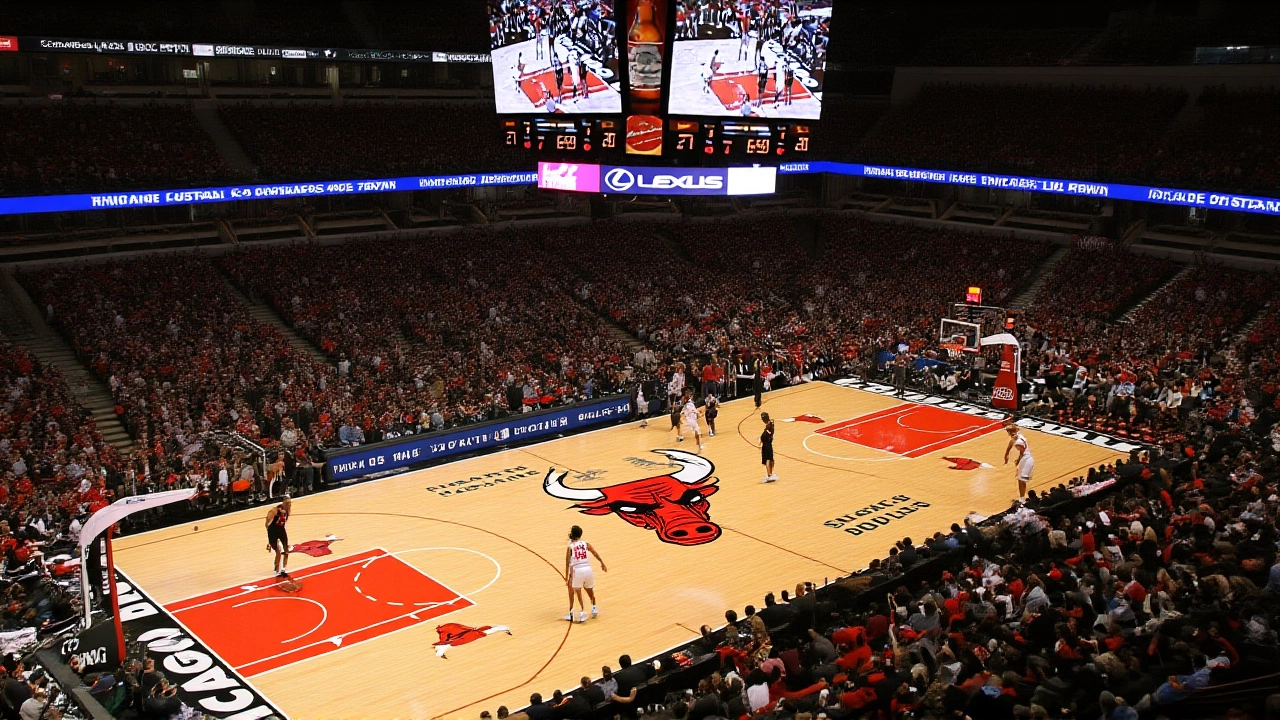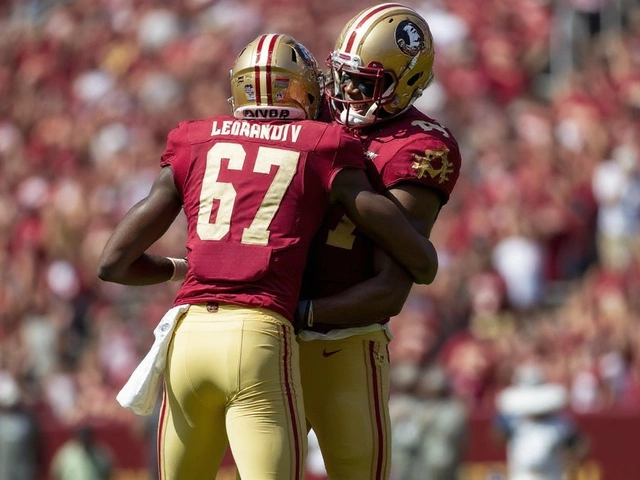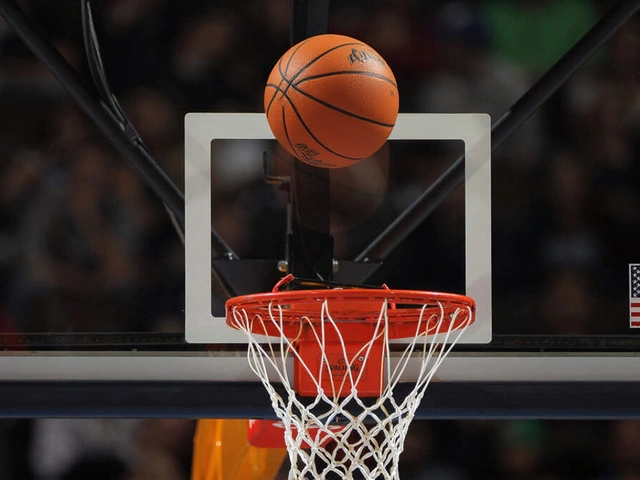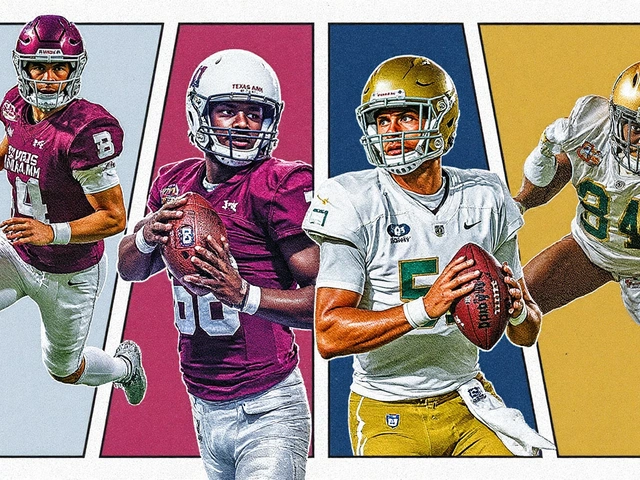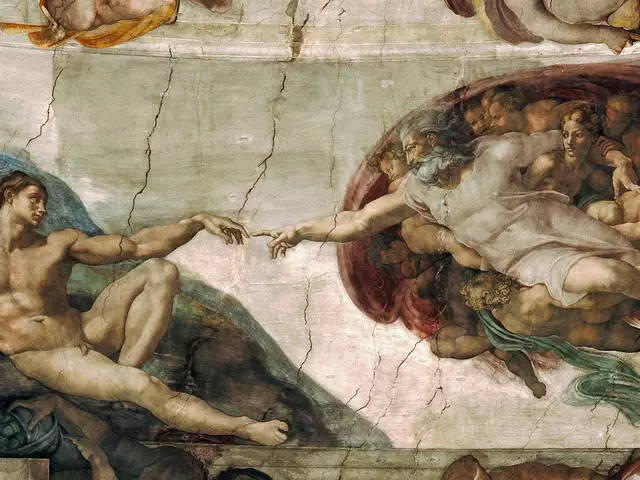The Miami Heat didn’t just beat the Chicago Bulls—they dismantled them. On the Emirates NBA CupUnited Center in Chicago, the Heat rolled to a stunning 143-107 victory on Thursday, November 21, 2025, turning what was expected to be a tight tournament clash into a statement game. Even without Tyler Herro, Nikola Jovic, Andrew Wiggins, and Terry Rozier, Miami played with a ferocity that left the Bulls reeling. And the man leading the charge? Second-year center Kel'el Ware, who dropped a career-high 20 points and 14 rebounds, adding two steals in a performance that screamed future All-Star.
From Underdogs to Dominators
Pre-game odds had the Bulls as 2.5-point favorites, with the over/under set at 249.5 points. Most analysts figured this would be a grind—two teams tied at 1-1 in the Emirates NBA Cup, both needing a win to stay alive in the knockout race. But the Heat had other plans. They opened with a 36-32 edge in the first quarter, then unleashed a second-quarter avalanche: 34 points to Chicago’s 20. That 14-point swing wasn’t just a run—it was a psychological knockout. By halftime, Miami led by 18. The Bulls never recovered.
Norman Powell, the veteran guard acquired last offseason, added 19 points and two steals, hitting clutch mid-range jumpers like he’d done it a thousand times. And while Ware dominated the paint, Miami’s bench—led by Caleb Martin and Max Strus—pounded the glass and hit open threes with eerie precision. The Heat shot 52% from the field and 41% from deep, while holding Chicago to just 43% shooting and forcing 16 turnovers. This wasn’t luck. It was execution.
The Bulls’ Collapse
Ayo Dosunmu fought hard—23 points, four assists, three threes—but he was alone. Without Zach Collins anchoring the middle, the Bulls’ interior defense looked like a sieve. Their guards drove into traffic, only to find Ware or Bam Adebayo waiting. The team’s rhythm? Gone. Their confidence? Eroding. And when the fourth quarter ended with Miami scoring 41 points, it wasn’t just a blowout—it was a coronation.
What made it worse for Chicago? The timing. This was their first loss in the Emirates NBA Cup after starting 1-1. Now at 8-7 overall, they sit fifth in the Eastern Conference, five games behind the division leader. Their playoff hopes aren’t dead, but the margin for error has vanished. Meanwhile, Miami improved to 10-6, tied for the best record in the East with Cleveland, and extended their win streak to three games. The Heat aren’t just playing well—they’re playing with a swagger they haven’t shown since the 2023 Finals run.
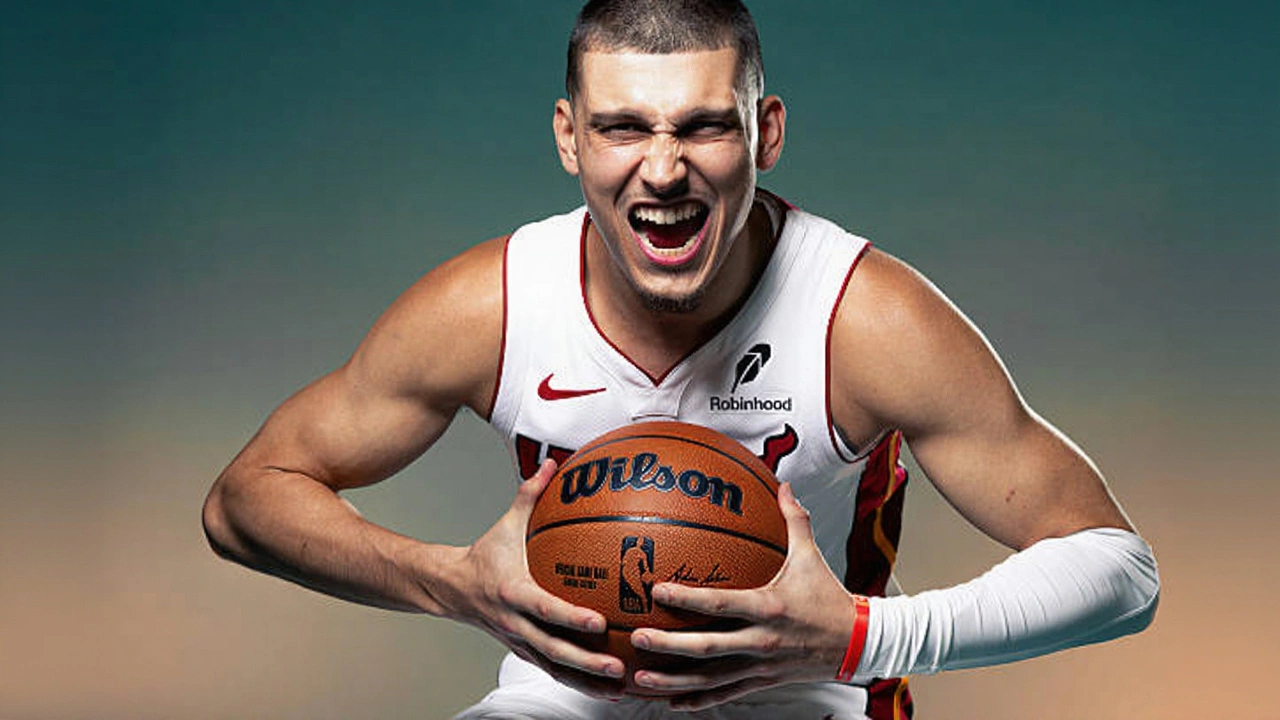
Why This Matters Beyond the Box Score
Kel’el Ware’s 20-14 night wasn’t just a personal milestone—it was a franchise moment. Drafted 17th overall in 2023, Ware was seen as a raw project. But this season, he’s become the defensive anchor Miami didn’t know it needed. His 14 rebounds were the most by a Heat center since Bam Adebayo’s 18-rebound game in March 2024. And with Miami’s offense flowing through the paint, Ware’s ability to finish, pass, and protect the rim has unlocked a new offensive identity.
For the Bulls, the questions pile up. Can they survive without Collins long-term? Is Dosunmu truly a franchise cornerstone, or just a bright spot in a sinking ship? And why, after a 1-0 start in the Cup, did they look so flat against a depleted Heat team? The answer might lie in coaching. Billy Donovan’s rotations were sluggish, his substitutions reactive, not proactive. By contrast, Erik Spoelstra’s adjustments—switching to a zone in the second quarter, pushing the pace after halftime—were textbook.
The Ripple Effect
This result reshapes the Emirates NBA Cup standings. Miami now leads Group B at 2-1, while Chicago drops to 1-2. Only the top two teams in each group advance. The Heat’s path to the semifinals just got significantly clearer. The Bulls? They now need to beat the Orlando Magic and the Washington Wizards in their final two group games—and hope other results go their way. A tall order.
And then there’s the data glitch. Sofascore.com and FlashscoreUSA.com still listed a fake game between these teams on November 22, 2025. ESPN Australia’s recap mistakenly labeled the game as occurring on the 22nd. These aren’t just typos—they’re symptoms of how quickly digital sports platforms scramble to update real-time data. The real game? It happened. On the 21st. At the United Center. And the Heat didn’t just win. They rewrote history.
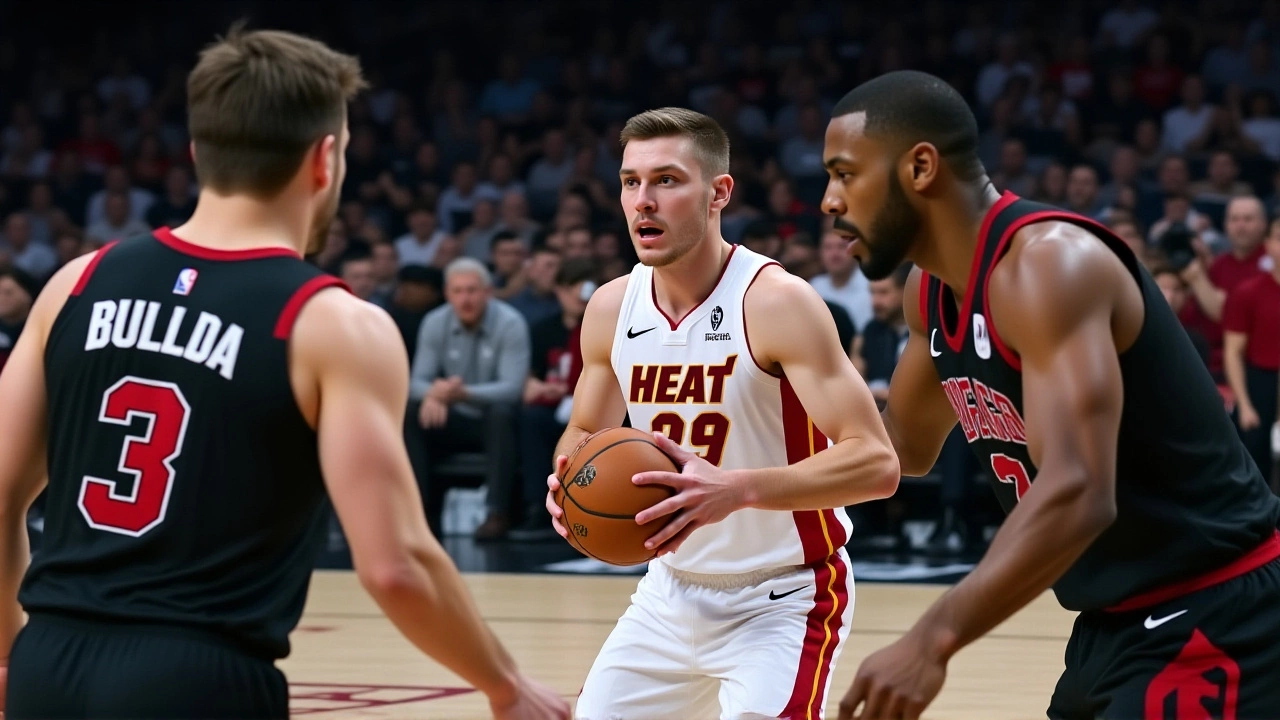
What’s Next?
Miami heads home to face the Atlanta Hawks on November 23, still searching for their first win at FTX Arena this season. But with Ware playing like a top-10 big and Powell hitting 42% of his threes, they’re starting to look like a true contender. For Chicago, the next test is tougher: a home game against the Washington Wizards on November 22, a team that’s lost 13 straight. Win that? Maybe they can still claw back. Lose it? Their Cup dreams are over.
One thing’s certain: this wasn’t just another regular-season game. It was a turning point—for Ware, for the Heat, and for the fragile confidence of a Bulls team still searching for its identity.
Frequently Asked Questions
How did Kel'el Ware’s performance compare to other Heat centers this season?
Ware’s 20 points and 14 rebounds against the Bulls were his best of the season and the highest by a Miami center since Bam Adebayo’s 18-rebound game in March 2024. He’s now averaging 12.3 points and 9.7 rebounds per game this season—up from 8.1 and 6.5 last year. His efficiency (64% FG) ranks among the top five in the NBA for players with at least 15 minutes per game.
Why did the Bulls lose despite Ayo Dosunmu’s 23 points?
Dosunmu was the only Bull to score more than 15 points. The rest of the starting lineup combined for just 57 points on 19-of-56 shooting. Chicago’s bench scored only 14 points, and their three-point shooting (29%) was well below their season average of 37%. Without Collins, they had no rim protection, and Miami exploited every gap in transition and the paint.
What’s the significance of the Emirates NBA Cup for playoff seeding?
While the Cup doesn’t directly affect playoff seeding, winning group games boosts team morale and provides high-stakes reps against playoff-caliber opponents. Teams that advance often carry momentum into December. Miami’s win puts them in prime position to reach the semifinals, which could give them extra rest and confidence before the stretch run.
Why were so many Heat players out, yet they still won so decisively?
Miami’s depth is underrated. Caleb Martin (17 points, 6 rebounds), Max Strus (15 points, 5 threes), and even rookie Dru Smith (11 points, 4 assists) stepped up. Spoelstra’s system rewards ball movement over star power. With Ware and Powell leading the charge, and the defense locking down, the Heat didn’t need Herro or Wiggins—they just needed cohesion. And they had it.
Did the date errors on sports sites affect betting markets?
No major sportsbooks were affected—oddsmakers rely on official league data, not fan sites. But casual bettors who trusted Sofascore or Flashscore may have placed bets on a non-existent November 22 game. The NBA confirmed the correct date through its official game log, and all official stats were retroactively corrected by the league’s data team by Friday morning.
Is this Miami Heat team a real contender for the NBA Finals?
They’re trending that way. With Ware emerging as a two-way force, Powell providing elite scoring off the bench, and Spoelstra’s system clicking, Miami has the defense, depth, and cohesion to challenge the top teams. They’re not the Celtics or Cavaliers yet—but after this win, they’re no longer an afterthought. They’re a team nobody wants to face in the playoffs.
